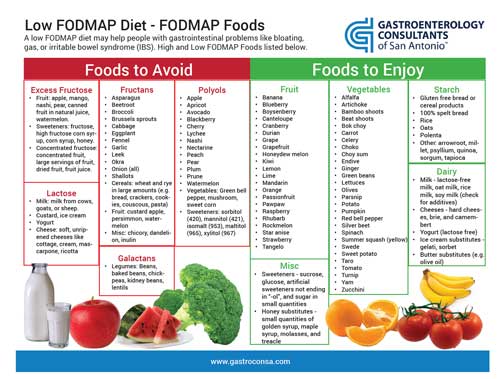Comprehensive Guide to Vegetarian Options: Can You Eat Eggs?
When it comes to choosing a vegetarian lifestyle, many people grapple with the question: can vegetarians eat eggs? This inquiry opens up a fascinating world of dietary options, ethical considerations, and nutritional benefits. Understanding the different types of vegetarians, particularly those who include eggs in their diet, can help you navigate vegetarianism more proficiently and healthily.
In this article, we will explore the various perspectives on consuming eggs within vegetarianism, including the distinctions between ovo-vegetarianism and other dietary practices. We will also discuss the health benefits of eggs, their nutritional profile, and how they can be incorporated into a vegetarian diet effectively. Additionally, we will address common misconceptions surrounding vegetarianism, present vegan alternatives, and delve into meal planning that balances protein needs for vegetarians.
Key takeaways from this comprehensive guide include an understanding of ethical vegetarianism, the role of eggs in a vegetarian diet, and practical advice on incorporating eggs into delicious, protein-rich dishes. By the end of this guide, not only will you have a clearer view of the eggs and vegetarian health relationship, but you'll also be equipped with recipe ideas that highlight both the versatility and nutritional benefits of including eggs in a sustainable vegetarian diet.
Understanding Different Types of Vegetarians
Before diving deep into the relationship between eggs and a vegetarian diet, it's essential to clarify the various types of vegetarians. This categorization is vital for understanding dietary choices and ethical beliefs that define vegetarianism.
Ovo-Vegetarian Diet Explained
The term "ovo-vegetarian" specifically refers to individuals who do not consume meat or dairy products but do include eggs in their diet. This choice enables them to benefit from the nutritional value of eggs while adhering to a primarily vegetarian lifestyle. Eggs can serve as a vital source of protein and other essential nutrients, making them a prized food among ovo-vegetarians.
Other Types of Vegetarians
Besides the ovo-vegetarian classification, there are other dietary practices. Lacto-vegetarians avoid meat and eggs but consume dairy products, while lacto-ovo vegetarians include both dairy and eggs in their meals. Pescatarians, though not entirely vegetarian, consume fish and seafood along with a plant-based diet. Understanding these distinctions helps in tailoring meal plans that meet individual dietary needs and preferences.
The Role of Ethical Considerations
For many vegetarians, ethical reasons motivate their dietary choices. Concerns about animal welfare and the environmental impacts of meat production often lead individuals to seek alternatives. However, those who endorse ovo-vegetarianism often believe in consuming ethically sourced eggs from free-range, humane egg-laying hens, which aligns their dietary choices with their ethical beliefs. This unique perspective opens avenues for exploring how to source eggs responsibly.
Building on these foundational concepts, let’s now explore the nutrition associated with eggs and how they contribute to a balanced vegetarian diet.
Nutrition and Health Benefits of Eggs
One of the essential discussions surrounding eggs in vegetarian diets pertains to their nutritional value. Eggs are well known for being a protein powerhouse, making them particularly valuable to vegetarians who need to meet their protein intake effectively.
Egg Nutritional Profile
Eggs are a rich source of several important nutrients. A medium-sized egg contains about 6 grams of high-quality protein. Moreover, eggs provide Vitamin B12, vital for vegetarians, along with riboflavin, phosphorus, and selenium. Additionally, they contain choline, which is crucial for brain health. Notably, the fat and cholesterol content found in eggs has raised much debate.
Health Benefits of Including Eggs
Consuming eggs as part of a balanced vegetarian diet has several health benefits. Research suggests that eggs may aid in weight management by promoting satiety, thus helping to regulate appetite. Moreover, the protein found in eggs is beneficial for muscle repair and contributes to overall health. Including eggs can positively influence vegetarian meal plans by enhancing protein diversity and offering nutritious options for various dishes.
Eggs and Cholesterol Concerns
One of the significant concerns about consuming eggs is their cholesterol content. While eggs do contain dietary cholesterol, recent research indicates that the relationship between dietary cholesterol and heart disease risk is more complex than previously thought. In moderation, incorporating eggs into a balanced diet is considered safe for most individuals. However, it is always advisable for those concerned about cholesterol to consult with a healthcare provider for personalized recommendations.
Having established the nutritional strengths of eggs, it is vital now to address common vegetarian misconceptions and how they intertwine with dietary choices regarding eggs.
Common Vegetarian Misconceptions
Throughout the evolution of vegetarian diets, several misconceptions have emerged, particularly concerning the role of eggs and overall vegetarian health. Addressing these misconceptions is crucial for fostering a more accurate understanding of what vegetarianism entails.
Misconception: All Vegetarians Avoid Animal Products
One common misconception is that all vegetarians abstain from any animal-derived food products, including eggs and dairy. In reality, many vegetarians choose to incorporate these foods based on nutritional needs or ethical beliefs. Understanding the diversity within vegetarian diets can lead to more inclusive dietary conversations.
Misconception: Vegetarian Diets Are Incomplete
Another prevalent myth is that vegetarian diets lack essential nutrients, particularly protein. Nevertheless, with careful planning, vegetarians can meet their nutritional needs effectively using diverse food sources such as legumes, grains, and yes, eggs, if included. Addressing this myth can motivate more individuals to consider reducing meat intake without fearing nutritional deprivation.
Misconception: Eggs Are Unhealthy for Everyone
Many people believe that consuming eggs is detrimental to health. However, studies reveal that eggs can be part of a healthy diet when consumed in moderation. Their health effects depend on individual dietary context and overall lifestyle choices. Furthermore, the ethical sourcing of eggs can offer peace of mind regarding their consumption.
With these misconceptions clarified, let's move on to explore delicious vegetarian recipes that successfully incorporate eggs.
Delicious Vegetarian Recipes Featuring Eggs
Integrating eggs into vegetarian dishes can elevate nutritional content while adding flavor and variety. Here are some delightful vegetarian egg recipes to consider:
Protein-Rich Egg Dishes
When incorporating eggs into meals, several protein-rich dishes shine. Frittatas and quiches are versatile options that allow for various vegetables and herbs. These dishes can be prepared ahead of time, making them perfect for meal planning and communal gatherings.
Culinary Uses of Eggs
Beyond breakfast options, eggs can be used in creative ways. From egg-based pasta to creamy carbonara sauces, the culinary possibilities are vast. Eggs also serve as a binding agent in vegetarian meat alternatives, enhancing texture and flavor in various dishes.
Vegetarian-Friendly Egg Dishes from Around the World
Exploring egg dishes across different cultures can enrich your vegetarian meal repertoire. Shakshuka, a Middle Eastern dish made with poached eggs in a spicy tomato sauce, and Spanish Tortilla made with eggs and potatoes exemplify how eggs can be utilized globally to create tasty vegetarian-friendly meals.

Continuing with our exploration, it's important to focus on key factors for a balanced vegetarian diet that includes eggs.
The Importance of Balance in a Vegetarian Diet
A sustainable vegetarian diet emphasizes balance, leaving room for various nutrient-dense foods. The incorporation of eggs is just one aspect of achieving this balance.
Vegetarian Protein Sources
In addition to eggs, vegetarian diets can benefit from various protein sources. Legumes, nuts, seeds, and dairy products contribute significantly to protein intake. Understanding how to balance these options alongside egg consumption can enhance overall protein-rich dietary choices.
Nutritional Guidelines for Vegetarians
Adhering to nutritional guidelines ensures all essential nutrients are met within a vegetarian diet. A focus on variety, including fruits, vegetables, whole grains, and lean protein sources like eggs, keeps meals interesting and nutritionally sound.
Planning a Balanced Vegetarian Meal
When creating meal plans, it's essential to include a mix of protein, healthy fats, and fiber. For example, pairing sautéed spinach with scrambled eggs and whole-grain toast creates a nutrient-rich breakfast, while a veggie-stuffed omelet makes for an elegant and nutrient-dense lunch option.

Common Concerns About Eggs in the Vegetarian Diet
As egg inclusion may raise concerns about health and ethics, it's important to address these issues directly.
Eggs and Health Concerns
Individuals often question the health implications of egg consumption, particularly regarding cholesterol and heart health. However, ongoing research suggests that moderate egg consumption can be safe and beneficial for most people. Balancing eggs with heart-healthy choices can mitigate any potential risks.
Ethical Egg Sourcing
For many vegetarians, the ethics surrounding egg consumption hinge on treatment of hens. Sourcing eggs from farms emphasizing humane practices can alleviate ethical concerns, ensuring that dietary choices align with personal values.
Eggs in the Context of Dietary Choices
Understanding the role of eggs within a vegetarian diet also encompasses the broader conversation around dietary choices and lifestyle impacts. As vegetarians seek to minimize animal suffering and environmental consequences, ethical sourcing plays a crucial role in the choices made.
Q&A Section: Common Questions about Eggs in Vegetarianism
Can all vegetarians eat eggs?
Not all vegetarians eat eggs. Those who include eggs in their diet are specifically called ovo-vegetarians. It's essential to know the different types of vegetarians to understand individual dietary choices.
Are eggs a good protein source for vegetarians?
Yes! Eggs provide high-quality protein along with essential vitamins and nutrients, making them an excellent choice for meeting vegetarian protein needs.
How can I incorporate eggs into my vegetarian meal plans?
Consider adding eggs to breakfast dishes like omelets, frittatas, or baking recipes for added nutrition. They can serve as a delightful ingredient in lunches and dinners too.
What are some common misconceptions about eggs?
Some believe that eggs are unhealthy or that they are not suitable for vegetarians. However, eggs can be a healthful choice when eaten in moderation, providing valuable nutrients.
What ethical concerns should I consider regarding egg consumption?
If you’re concerned about ethics, sourcing eggs from humane and sustainable farms is crucial. This ensures that the hens are raised in environments in line with your values.
In conclusion, understanding the role of eggs in vegetarianism opens doors to diverse nutritional benefits while allowing for flexible meal planning. Embracing eggs can enhance your vegetarian experience while aligning with ethical practices, offering delicious culinary options to explore.
